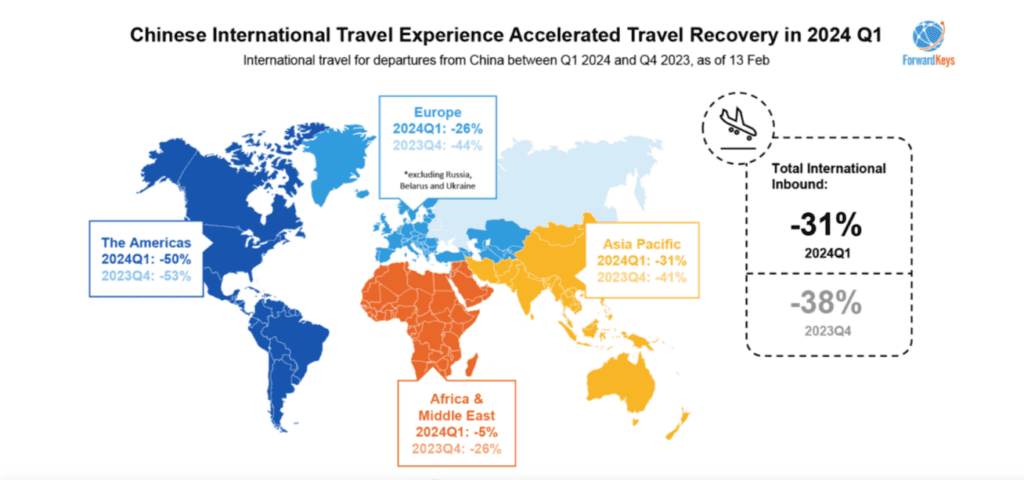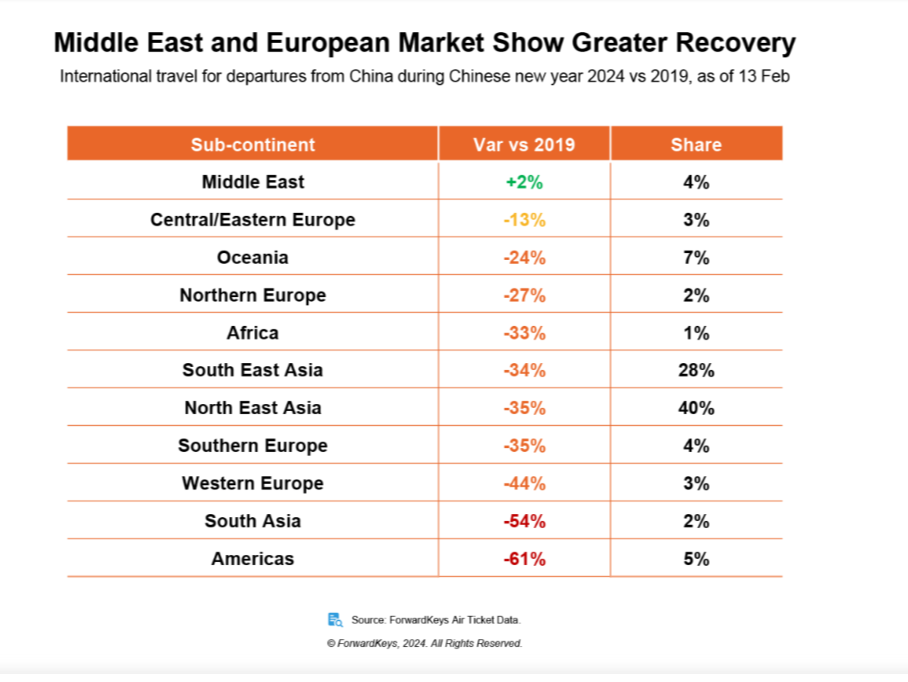Skift Take
Chinese travelers are set to takeoff. But before booking, they’re double-checking that visa policies are relaxed enough.
Outbound travel from China to the Middle East reached pre-pandemic levels during the Chinese New Year period, according to data firm ForwardKeys.
The Egyptian capital of Cairo experienced a 7% increase in Chinese arrivals compared to 2019.
Data on flight tickets issued until February 13 suggests that travel to Africa and the Middle East could reach 95% of pre-Covid levels by March 31.

Chinese online travel platform Qunar also noted that search volumes for countries in the Middle East such as Turkey, the United Arab Emirates (UAE) and Egypt have surged since last December.
In December, China Eastern Airlines became the first carrier from the country to operate a direct route between Shanghai and Cairo.
Egypt last year eased tourist visa requirements for Chinese travelers allowing them to secure a visa on arrival.
Speaking to Skift, Calvin Chu, managing director, international vacation business at Alibaba’s Fliggy, had earlier noted that Chinese travelers are showing an interest to travel to Egypt.
The Recovery Now
Prior to the pandemic, China was the world’s largest outbound tourism market. Chinese tourists accounted for a total of 20% of total spending in international tourism. They spent around $277 billion in 2018 and $255 billion in 2019.
Overall, international travel from China in the first quarter of 2024 is expected to reach 69% of 2019 levels. While this showcases a significant recovery from the previous year, it still remains below peak levels.
Travel to Asia Pacific is projected to reach 69%, while recovery in the Americas remains 50% below pre-Covid.


Despite these challenges, there are optimistic signs for travel recovery, including increased seat capacity from China, reaching 71% of 2019 levels in the first quarter.
This positive outlook is further supported by favorable developments in visa policies.
ForwardKeys also notes a shift in Chinese household budget allocation towards cultural and leisure consumption, indicating a growing interest in travel.
Post-Covid-19, the tourism industry in China has assumed greater significance in the national economy, backed by supportive policies aimed at revitalizing the sector.
During the Chinese New Year, outbound travel trailed 2019 levels by 32%, with most travelers visiting Southeast Asia and Northeast Asia.
Visa-Free Travel
Emerging markets like Kazakhstan and Uzbekistan, which are now visa-free for Chinese tourists, are driving significant recovery in the long-haul market.
Resilient destination cities for Chinese travelers include Kuala Lumpur, Macau, Singapore, and Ho Chi Minh City, which have already surpassed 2019 levels.
Recent visa-free policies have attributed to the popularity of Kuala Lumpur and Singapore, while relaxed entry requirements in Macau and Dubai have led Chinese travelers to visit these destinations.
Seoul and Hong Kong are gradually recovering, experiencing around a 20% decline compared to 2019 levels.
Northern Europe’s appeal, especially for experiences like Northern Lights expeditions, is also gaining traction among Chinese travelers.
Safety concerns and visa procedures play crucial roles in shaping Chinese international travel trends in 2024.
Long-haul destinations like Sydney, London, and Melbourne exhibit significant resilience, with minor decreases compared to 2019 levels.

